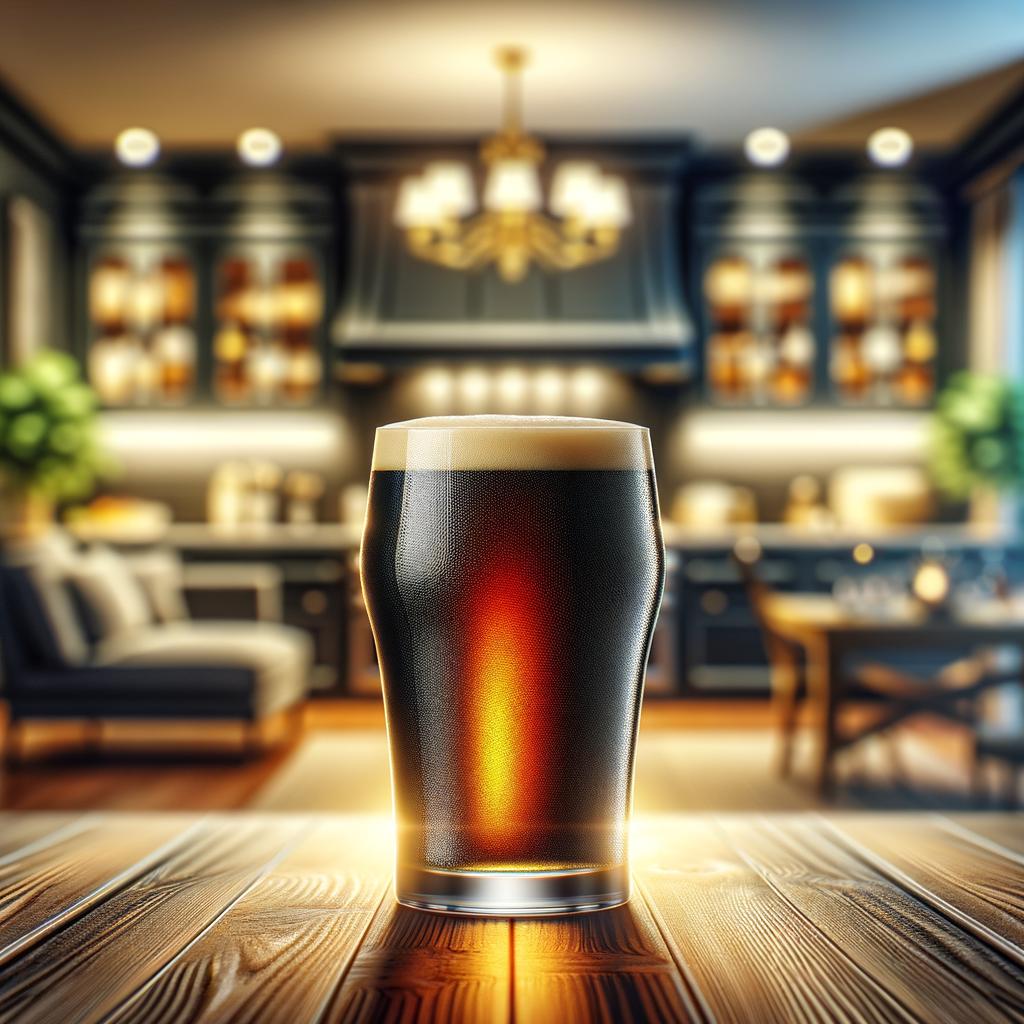Dark Beer

Dark Beer
Description
Dark beer, also known as stout or porter, is a rich and complex brew that is a delight to the senses. Its appearance is a deep ebony hue, often so dark it's nearly black, with a thick, creamy head that ranges from a light tan to a rich brown. The texture is smooth and velvety, often leaving a luscious feel on the palate. The flavor profile is a symphony of roasty maltiness, featuring notes of chocolate, coffee, caramel, and sometimes even a hint of smoke. What sets dark beer apart from its lighter counterparts is not just its color, but its depth of flavor and complexity. Each sip reveals a new layer of taste, making it a fascinating beverage to savor.
Primary Uses
Dark beer is not just for drinking, it's a versatile ingredient in the culinary world. It's used in a variety of cuisines, adding a depth of flavor to dishes that is hard to achieve with other ingredients. In Irish cuisine, it's a key component in stews and braised dishes, while in Belgian cuisine, it's often used in carbonades and other slow-cooked dishes. Dark beer also finds its way into desserts, like chocolate cakes and brownies, where it enhances the chocolate flavor. Aside from its culinary uses, dark beer is also used in some cultures for medicinal purposes, believed to aid digestion and even promote good sleep.
History
The history of dark beer is as rich and complex as its flavor. Originating in London in the 18th century, it was initially brewed for the hardworking porters, hence the name 'porter beer'. Over time, the brew evolved, becoming darker and stronger, leading to the stout we know today. Dark beer has a certain romantic allure, often associated with cozy pubs, roaring fires, and hearty meals. Its use and popularity have evolved over time, with craft breweries now offering a wide range of dark beers, each with its unique twist.
Nutritional Information
Dark beer is not just a flavorful brew, but it also offers a decent nutritional profile. It's rich in antioxidants, particularly one called xanthohumol, which is known for its potential cancer-fighting properties. Dark beer also contains vitamins like niacin, riboflavin, and vitamin B6. It's a source of minerals like magnesium, selenium, and potassium. While it's higher in calories than its lighter counterparts, the richness of dark beer often means you'll drink less of it. Like all alcoholic beverages, it should be consumed in moderation. When enjoyed responsibly, dark beer can be part of a balanced diet, offering not just a rich, complex flavor but also a dose of beneficial nutrients.

